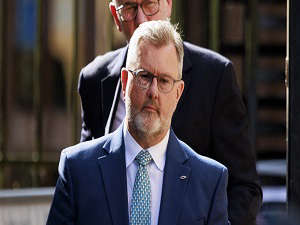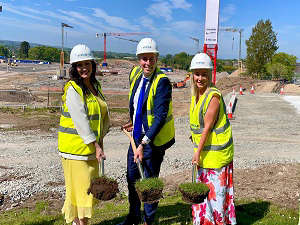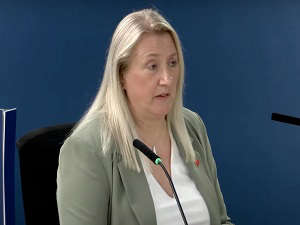
by Q Radio News
A senior GP in Northern Ireland has warned the coronavirus pandemic has caused a "tsunami" of mental health problems.
Dr Laurence Dorman from the Royal College of GPs addressed Stormont's Health Committee on Thursday.
He outlined some of the main issues affecting GPs since lockdown began.
Dr Dorman told MLAs, "The pandemic has caused a tsunami of low-grade depression, anxiety, and societal stress and frequently GPs are the most available medical professionals available to our patients.
"Prescribing data in Northern Ireland shows we do have higher rates of anti-depressant medication compared with Scotland and England, and significantly higher rates of hypnotics and anxiolytics compared to England, Scotland and Wales."
Dr Dorman added, "GPs need access to a range of treatment options when treating mental health conditions and along with a full range of therapies offered by a community mental health hub, the MDT (Multi-Disciplinary Teams) model within the GP practice at its core offers us the best way of doing that."
"General Practice didn't enter the pandemic in a good place. RCGPNI Survey data, cited in our vision document: Support Sustain, Renew, highlighted that 26% of GPs indicated they intended to retire within the next 5 years" @laurence903 pic.twitter.com/CpvlfWTAOH
— RCGPNI (@rcgp_ni) March 25, 2021
Meanwhile, Dr Alan Stout, BMA NI representative told the committee, "Astronomical” numbers of patients are contacting GP surgeries.
Despite a perception that GP surgeries have been closed during the coronavirus pandemic, Dr Stout said 150,000-160,000 consultations are being held per week, with another 10,000 via the out-of-hours service.
He told MLAs it had been a “very tough” year for general practice, but that the pandemic had also shown the “vital role” it plays in the health service.
Dr Stout said GPs have run a dual service across the pandemic, staffing Covid-19 centres and their own practice as well as delivering the flu and Covid vaccine programmes.
“All of these equate to almost four jobs in one with an ever-increasing demand and a constrained, stressed and extremely fatigued workforce,” he said.
“There is no question that every single GP is finding it very, very tough at the moment."


 Rescue operation to free 40 cows after lorry overturns on motorway
Rescue operation to free 40 cows after lorry overturns on motorway
 New date set for trial of former DUP leader Jeffrey Donaldson and wife
New date set for trial of former DUP leader Jeffrey Donaldson and wife
 Shared education campus ‘symbolic’ in Northern Ireland’s reconciliation journey
Shared education campus ‘symbolic’ in Northern Ireland’s reconciliation journey
 Man jailed for seven years after crash which killed two teenagers
Man jailed for seven years after crash which killed two teenagers
 Couple died after Covid ‘taken into house by carers’, daughter tells inquiry
Couple died after Covid ‘taken into house by carers’, daughter tells inquiry